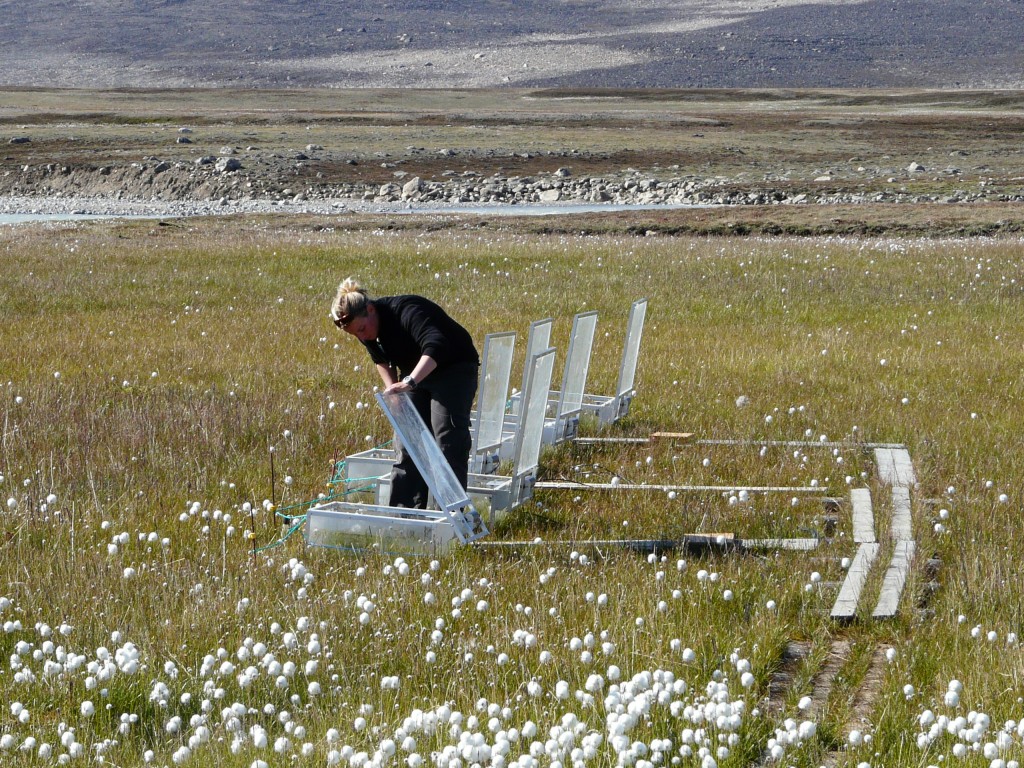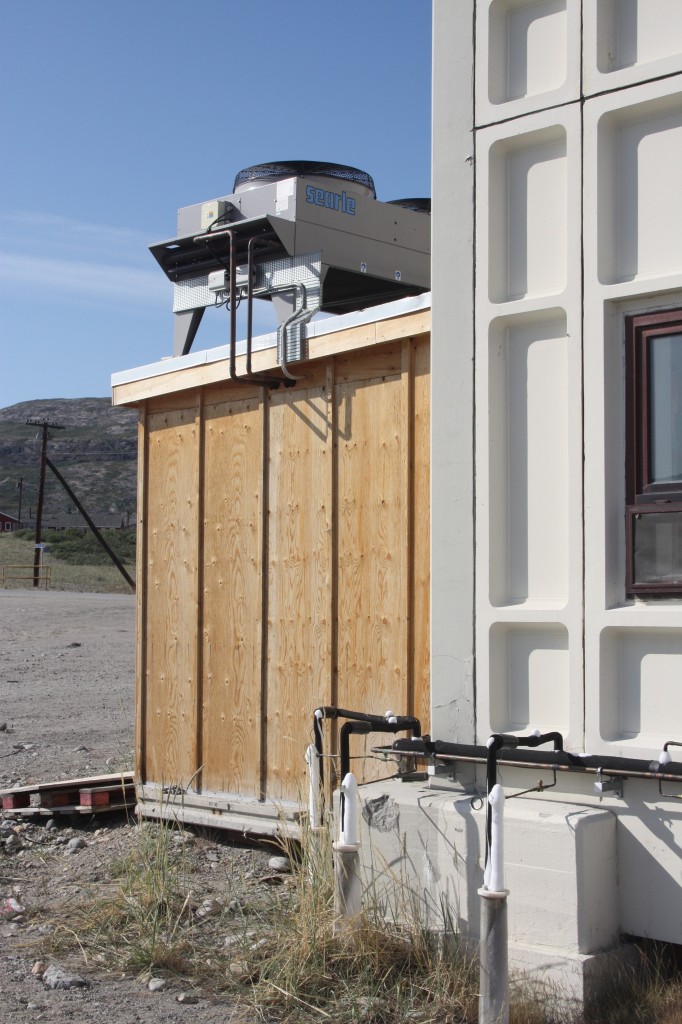Warming permafrost on the Doha agenda

Scientists at measuring stations like the one I visted at Zackenberg, Greenland, measure the amount of greenhouse gases emitted by melting permafrost.
I was glad to see UNEP making sure the melting permafrost issue gets some wider public attention by launching its first report on the status of the world’s permafrost regions in Doha while the international climate talks are in full swing. Climate change is having a major impact on the permanently frozen soil in the Arctic, Siberia and high mountain regions. In the UNEP study, an international team of experts explain what is happening and what potential risks this thaw has for countries with permafrost.
The soils in the Arctic, Siberia and in high mountain regions, which are frozen down up to a depth of 1500 metres, belong to the largest carbon stores on earth. They are estimated to contain about twice as much carbon as is currently in the atmosphere. If this permafrost of ice and earth starts to thaw, bacteria and micro-organisms start to break down a large part of the animal and plant matter contained in the soil. This converts the carbon stored there into methane and carbon dioxide. Both are greenhouse gases which intensify global warming and lead in turn to the thawing of more permafrost. Scientists call this the permafrost feedback effect.

In some parts of Greenland, refrigeration has to be used to cool the foundations of buildings on permafrost, sagging in a warming climate. (Kangerlussuaq)
So far it has only been possible to estimate the extent of this feedback effect.“The significance of the permafrost for the global climate and the life of people in the Arctic and the mountains have been neglected for far too long. The time has now come for the political decision-makers to also address this problem and take it seriously“, says Hugues Lantuit from Germany’s Alfred-Wegener Institute for Polar and Marine Research, one of the co-authors of the report. Lantuit and his fellow researchers call on politicians and climate scientists to include the knowledge about the change in the permafrost regions to a greater extent in the international climate debate.
I have my reservations about how much these UN climate mega-conferences can actually achieve, but turning public attention to all aspects of climate change has got to be one of the main positive aspects. Earlier today, the Potsdam Institute for Climate Impact Research published a new report on how sea level rise has been drastically underestimated in previous models. Again, my feeling is it is getting more news space against the background of the Doha talks.
There are plenty of climate-related issues that should reinforce the urgency of clear progress towards a new world climate. In an interview I conducted recently with climate expert Professor Stefan Rahmstorf from the Potsdam Institute, (also one of those responsible fort he sea level report) he stresse how important it is for efforts to reduce emissions to go on all the time, outside the high-profile annual negotiations. I agree wholeheartedly Prof Rahmstorf.
Coming back to the permafrost, the UNEP report authors suggest some direct measures, including extending the measurement station network, standardising measuring methods and including “permafrost feedback” in all climate models.
The other issue on the agenda is adaptation. “States such as Russia, Canada, China or the USA with large permafrost areas should start to estimate and record possible risks, damage and costs of a large-scale thawing process“, explains Hugues Lantuit. According to the UNEP report there have so far been only a handful of studies dealing with the resulting costs. In future the amount of damage to houses, roads, water pipes and other infrastructure will rise considerably.















